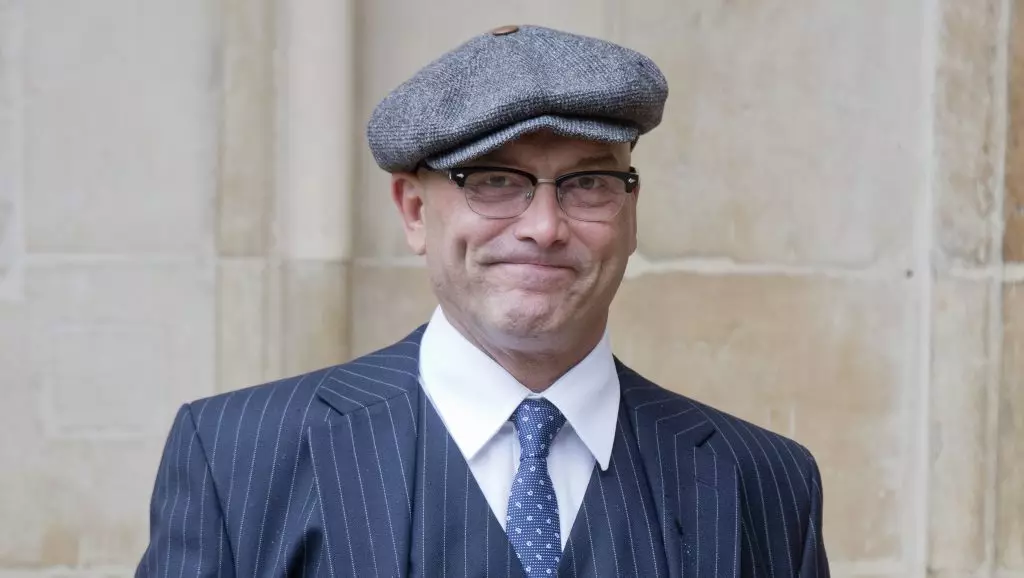In the realm of televised entertainment, especially within extensive productions like MasterChef, the lines between authority and vulnerability are often blurred. When misconduct allegations emerge against prominent figures such as Gregg Wallace, they reveal not only individual behavior but also systemic issues within powerful institutions. The recent revelations about Banijay UK’s decision to hire a full-time welfare specialist for Wallace underscore a troubling trend: the prioritization of reputation management over genuine accountability and humane support. While the intent to safeguard mental health is commendable, it also raises questions about whether such measures forestall transparent consequences or serve as stealthy cushioning for systemic flaws.
This approach illustrates how institutions sometimes depend on reactive measures, such as hiring welfare professionals, to shield their high-profile employees from the fallout of misconduct allegations. It betrays an underlying tendency to protect stars at the expense of creating a safe working environment for all. The presence of a dedicated welfare coach signals a recognition of Wallace’s distress, possibly linked to the accusations, but it also subtly implies a degree of coddling that can undermine the seriousness of the allegations and the need for justice. In environments where power imbalances are significant, this combination of support and cover-up can perpetuate a culture where misconduct is insufficiently challenged.
The Danger of Downplaying Serious Claims Through Neurodiversity Narratives
One of the most controversial aspects of the Wallace case involves his framing of alleged misconduct through the lens of his autism diagnoses. Wallace has publicly attributed his behavior to neurodiversity, claiming that his social boundaries are uncertain due to autism. While neurodiversity advocates emphasize understanding and accommodating different neurological profiles, weaponizing these claims in legal and public disputes can dangerously distort accountability. Using autism as a shield risks dismissing the rights and safety of others while sidestepping the need to address problematic behavior genuinely.
Furthermore, this narrative can perpetuate stereotypes about neurodiverse individuals as inherently unpredictable or uncontrollable, which is both unfair and damaging. It is acceptable to seek support and understanding for neurodiversity, but it should not become a justification for inappropriate conduct or a reason to mitigate the severity of allegations. Employers and public figures alike must navigate these claims with sensitivity yet unwavering firmness that accountability and safety take precedence over justifications rooted in neurodiversity.
The Role of Corporate and Media Responsibility in Upholding Ethical Standards
The media’s coverage of Wallace’s allegations and subsequent actions reveals a delicate balancing act between protecting individual rights and safeguarding public trust. While Wallace claims that some allegations have been ‘thrown out’ and emphasizes his previous warnings, the ongoing investigation—along with the BBC’s decision to sever ties—suggests a trend toward zero tolerance for certain behaviors or at least heightened awareness of potential risks.
What remains critical here is the transparency of investigations and the clarity with which organizations communicate their stance. By engaging law firms like Lewis Silkin and openly discussing their findings, production companies demonstrate a commitment to due process. Yet, they also face the challenge of ensuring their internal processes aren’t merely performative. Stakeholders must demand more than just investigation reports; they should seek cultural shifts that emphasize respect, safety, and accountability, especially for vulnerable individuals or those with neurodiverse conditions.
Moreover, the case prompts reflection on the broader societal responsibility of companies and media outlets to confront misconduct proactively rather than reactively. The allure of maintaining a star’s reputation should never overshadow the imperative to protect victims and uphold ethical standards. The public’s trust hinges on consistent integrity—something that, in high-stakes entertainment environments, can only be achieved through unwavering adherence to principles of accountability.
Deepening the Conversation: The Intersection of Mental Health, Justice, and Media Ethics
Wallace’s public revelation of contemplating suicide amid the controversy exposes the deeply personal toll that misconduct allegations and their aftermath can inflict. It also highlights the importance of mental health support in high-pressure industries, where intense scrutiny and public judgment are commonplace. While empathy for Wallace’s struggles is warranted, it should not detract from the core issue: ensuring wrongdoing is addressed decisively, and systemic safeguards are in place to protect everyone on set.
This case underscores the moral obligation of organizations to foster environments where issues can be discussed openly without fear of reprisal or disbelief. True progress involves creating spaces where individuals feel safe and supported—rather than emotionally isolated or vilified. By doing so, organizations not only support refined investigations but also affirm their commitment to human dignity.
As society grapples with issues of accountability, neurodiversity, and mental health, it is essential to recognize that justice and compassion are not mutually exclusive. They are, in fact, intertwined. A Media landscape that champions ethical conduct, transparent investigations, and comprehensive support systems can serve as a model not just for the entertainment industry but for society at large. Confronting uncomfortable truths with honesty and empathy paves the way for a future where accountability is genuine, and care extends beyond the surface.

